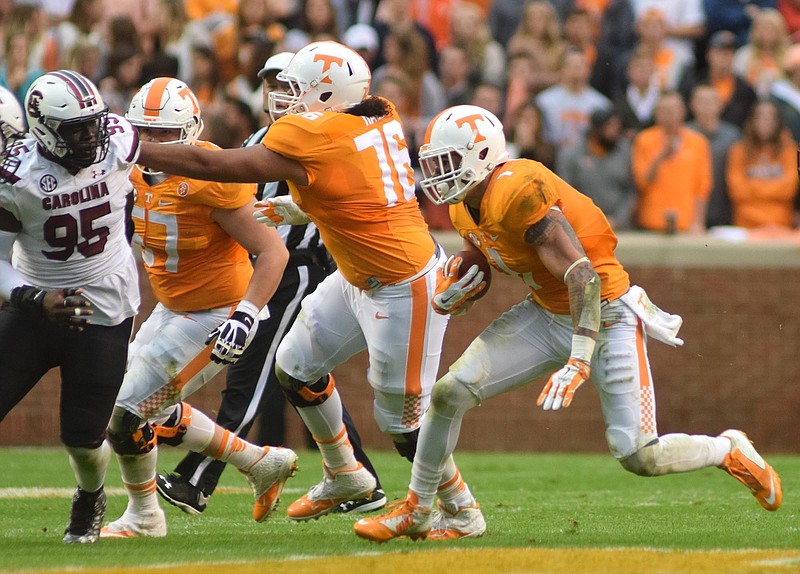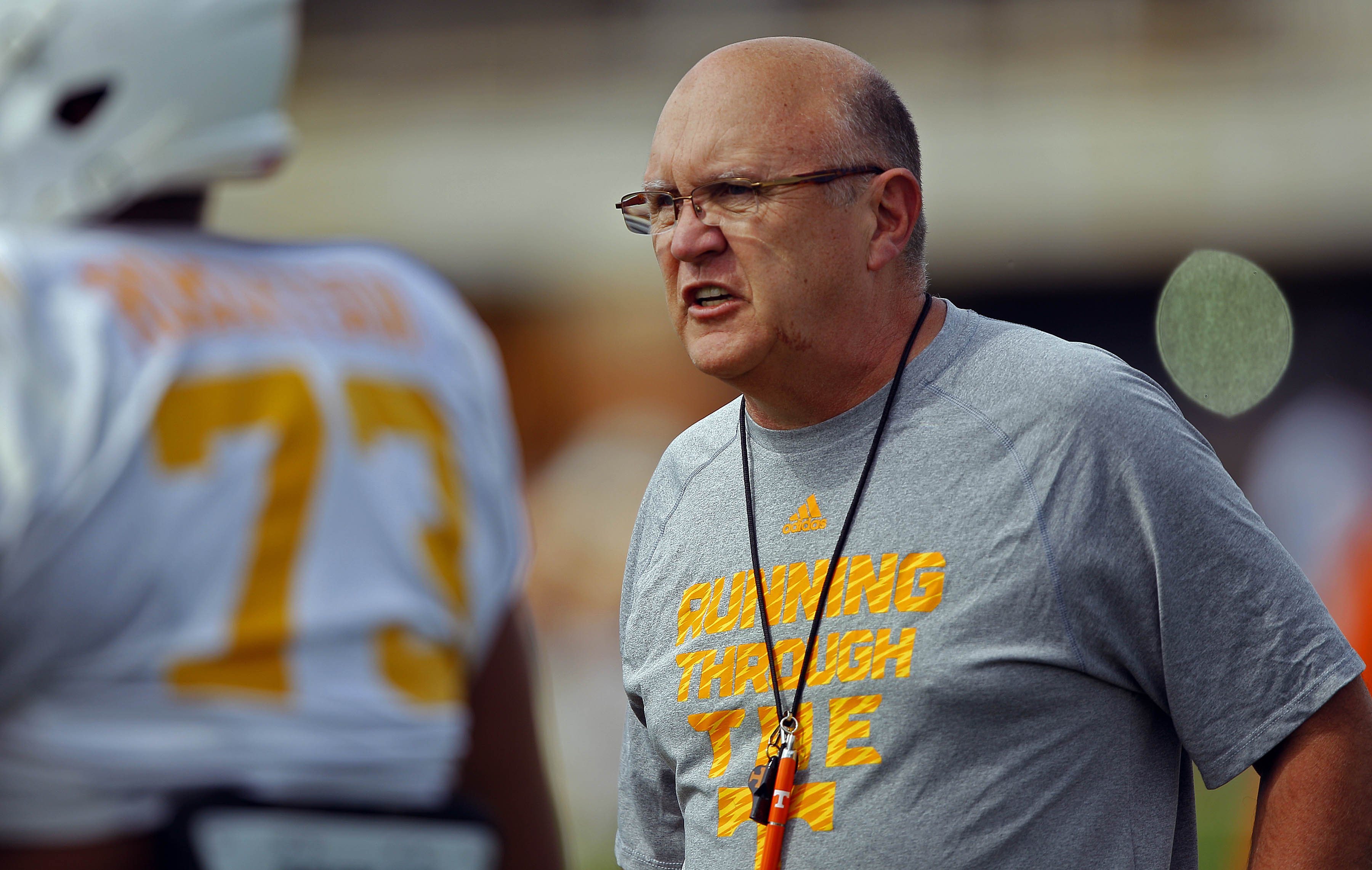KNOXVILLE - Mike DeBord often says that each football game during a season has a story of its own.
That story often has been pretty similar for Tennessee's offense in 2015.
The Volunteers have been impressively productive to open games, but too many of those strong starts have faded into frustrating finishes, as was the case in last week's 27-24 win against South Carolina.
The Vols breezed down the field for touchdowns on their opening two possessions before encountering a lull. The offense snapped out of that in time to score 10 second-half points after the Gamecocks erased a 17-point deficit.
Quarterly report
Here are Tennessee’s total-offense yard averages this season by quarter.› First: 138.3› Second: 112.8› Third: 92.8› Fourth: 75.4
While mustering only 17 rushing yards against the statistically worst run defense in the Southeastern Conference, Tennessee turned to its passing game to win, and DeBord, the Vols' first-year offensive coordinator, admitted he elected not to run Josh Dobbs as much in the second half. He hinted that that choice hinged on preserving the quarterback's health.
"I decided not to really run Josh as much in the second half," DeBord said after Tuesday's practice. "We stayed away from that a little bit. When you have that ability to do both with the back and the quarterback, that's hard on a defense. I just went to basically running our backs a lot more in the second half.
"I give (South Carolina) credit for blitzing a lot. In the first half, it was every other first or second down. In the second half, it was really consistent on early downs. They blitzed us in the red zone when we hit them on the screen pass and caught them in that. It was just a little more of a bit blitzfest in the second half.
"Then we had some things execution-wise where we didn't really do a good job of cutting off on the back side of some of our runs where we could have big runs."
Entering the season's final three weeks, the Vols are third in the SEC in scoring and sixth in total offense, but they have been much more productive in the first halves than the second halves of games.
In the first half, the Vols average 251.1 yards and have totaled 192 points. In the second half, those numbers dip to 168.2 yards and 117 points.
"I think teams in the second half have come out and said, 'Hey, we're going to blitz you to try to stop you,'" DeBord said.
"I think that's a credit to us in that they don't feel like they can sit there and play base defenses and stuff. Now when they blitz, it puts everybody in a one-on-one situation (where) one missed block, one bad angle, whatever can result in a bad play.
"It just creates a little bit of inconsistency, really."
If you take out the fourth-quarter numbers from when Tennessee led Bowling Green, Western Carolina and Kentucky by 19, 52 and 31 points entering the final frame, the Vols are averaging less than 70 yards in the fourth quarter.
The Vols had 8 fourth-quarter yards against Oklahoma and 29 against Arkansas, when they had just four second-half possessions, and lost both games. Two of Tennessee's most productive fourth quarters came against Georgia (135 yards) and Florida (104). The Vols had 74 in the fourth quarter last Saturday.
"I'm not sure (why)," left tackle Kyler Kerbyson said Monday. "I think it goes back to defenses learning and being able to adjust off of what we do. I know we're a very good-conditioned team. I think we have the right amount of plays and right play-calls to be able to adjust and figure out what they're doing and be able to take advantage of it.
"That's really what we did toward the end (against South Carolina)."
The second-half struggles, particularly in the losses, take away from how excellent Tennessee has been to open games. The Vols scored their fourth opening-drive touchdown of the season against South Carolina. They reached field-goal range in the first possessions of three other games. Only once, at Florida, has Tennessee punted on its opening possession.
In the previous two seasons, Tennessee scored five first-drive touchdowns and punted 14 times.
DeBord said the Vols script the first 10 first- and second-down plays and what plays they'll call on third downs of various distances and practice those scripts during the week.
"Our guys know right now what the first play is, the second play, the third play," he said. "They know what's coming all the time. I just think that's an advantage.
"Now, you get past those, and they're not going to remember what play 25 is and 30, you know what I mean? Now you're calling it and going. I just think a little bit of it is familiarity a little bit and practicing that right before the game, the day before them knowing what we're going to do. We've been successful that way."
Sustaining that success, though, has been another story.
"When you come out, I think you just come out and you play," Dobbs said. "Then obviously as you get into the game people make adjustments on offense and defense. It kind of turns into a chess match between the two sides of seeing what one guy is doing and how the other guy's going to respond to that."
Contact Patrick Brown at pbrown@timesfreepress.com.

